To be born again, or to experience the new birth, is a phrase, particularly in evangelical Christianity, that refers to a "spiritual rebirth", or a regeneration of the human spirit. In contrast to one's physical birth, being "born again" is distinctly and separately caused by the operation of the Holy Spirit, and it occurs when one surrenders one's life to Christ. While all Christians are familiar with the concept from the Bible, it is a core doctrine of the denominations of the Anabaptist, Moravian, Methodist, Baptist, Plymouth Brethren and Pentecostal churches along with evangelical Christian denominations. These Churches stress Jesus's words in the Gospels: "Do not be astonished that I said to you, ‘You must be born from above.’". Their doctrines also hold that to be "born again" and thus "saved", one must have a personal and intimate relationship with Jesus Christ.

The gender attributed to demons has varied from one belief system to the next.
Inclusivism is one of several approaches in religious studies, anthropology, or civics to understand the relationship between different religions, societies, cultures, political factions etc. It asserts that there is beauty in the variety of different schools of thoughts, and that they can coexist. It stands in contrast to exclusivism, which asserts that only one way is true and all others are erroneous.
Christian leaders have written about male homosexual activities since the first decades of Christianity; female homosexual behavior was almost entirely ignored. Throughout the majority of Christian history, most Christian theologians and denominations have considered homosexual behavior as immoral or sinful.
John Eldredge is an American author, counselor, and lecturer on Christianity. He is known for his best-selling book Wild at Heart.
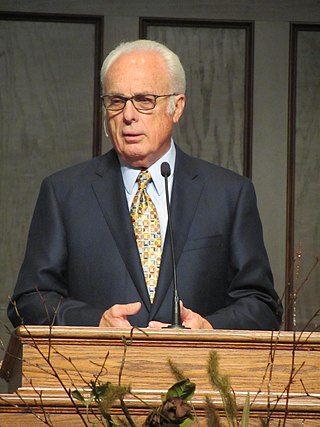
John Fullerton MacArthur Jr. is an American pastor and author who hosts the national Christian radio and television program Grace to You. He has been the pastor of Grace Community Church, a non-denominational church in Sun Valley, California since February 9, 1969. He is currently the chancellor emeritus of The Master's University in Santa Clarita and The Master's Seminary.
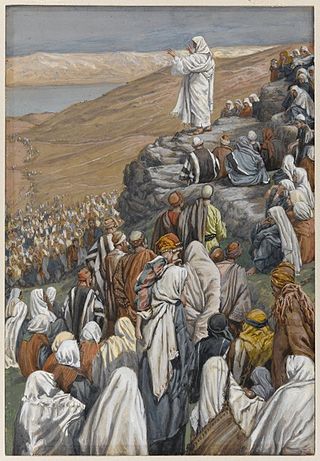
Christian ethics, also known as moral theology, is a multi-faceted ethical system. It is a virtue ethic, which focuses on building moral character, and a deontological ethic which emphasizes duty. It also incorporates natural law ethics, which is built on the belief that it is the very nature of humans – created in the image of God and capable of morality, cooperation, rationality, discernment and so on – that informs how life should be lived, and that awareness of sin does not require special revelation. Other aspects of Christian ethics, represented by movements such as the social Gospel and liberation theology, may be combined into a fourth area sometimes called prophetic ethics.
Outward holiness, or external holiness, is a Wesleyan–Arminian doctrine emphasizing holy living, service, modest dress and sober speech. Additionally, outward holiness manifests as "the expression of love through a life characterised by 'justice, mercy and truth'". It is a testimony of a Christian believer's regeneration, done in obedience to God. The doctrine is prevalent among denominations emerging during the revival movements, including the Methodists, as well as Pentecostals. It is taken from 1 Peter 1:15: "He which hath called you is Holy, so be ye holy in all manner of conversation".
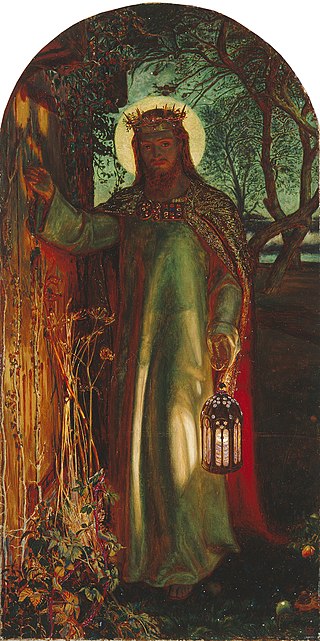
The Sinner's prayer is a Christian evangelical term referring to any prayer of repentance, prayed by individuals who feel sin in their lives and have the desire to form or renew a personal relationship. This prayer is not mandatory but, for some, functions as a way to communicate with and understand their relationship with God through Jesus Christ. It is a popular prayer in evangelical circles. While some Christians see reciting the Sinner's prayer as the moment defining one's salvation, others see it as a beginning step of one's lifelong faith journey.

Captivating: Unveiling the Mystery of a Woman's Soul is a book published in 2005 by John Eldredge and his wife Stasi. The book rejects the idea of an ideal woman and explores biblical scripture from the view that God desires woman to embrace, rather than fear, her femininity. Captivating is a companion to Wild at Heart, also by John Eldredge, and argues that its model of femininity complements men's innate desires for "a battle to fight," "an adventure to live," and "a beauty to rescue." They claim that women have three core desires: "to be romanced, to play an irreplaceable role in a great adventure, and to unveil beauty".
Christian feminism is a school of Christian theology which uses the viewpoint of a Christian to promote and understand morally, socially, and spiritually the equality of men and women. Christian theologians argue that contributions by women and acknowledging women's value are necessary for a complete understanding of Christianity. Christian feminists are driven by the belief that God does not discriminate on the basis of biologically determined characteristics such as sex and race, but created all humans to exist in harmony and equality regardless of those factors. On the other hand, Christian egalitarianism is used for those advocating gender equality and equity among Christians but do not wish to associate themselves with the feminist movement.
Gender, defined as the range of characteristics pertaining to, and differentiating between, masculinity and femininity, and religion, a system of beliefs and practices followed by a community, share a multifaceted relationship that influences both individual and collective identities. The manner in which individuals express and experience their religious convictions is profoundly shaped by gender. Experts from diverse disciplines such as theology, sociology, anthropology, and gender studies have delved into the effects of gender on religious politics and societal standards. At times, the interplay between gender and religion can confine gender roles, but in other instances, it can empower and uphold them. Such insights shed light on the ways religious doctrines and rituals can simultaneously uphold specific gender expectations and offer avenues for gender expression.

Muscular Christianity is a religious movement that originated in England in the mid-19th century, characterized by a belief in patriotic duty, discipline, self-sacrifice, masculinity, and the moral and physical beauty of athleticism.

Christian egalitarianism, also known as biblical equality, is egalitarianism based in Christianity. Christian egalitarians believe that the Bible advocates for gender equality and equal responsibilities for the family unit and the ability for women to exercise spiritual authority as clergy. In contrast to Christian complementarianists and Christian patriarchists, proponents of Christian egalitarianism argue that Bible verses often used to justify patriarchal domination in gender roles are misinterpreted. Egalitarians believe in a form of mutual submission in which all people submit to each other in relationships and institutions as a code of conduct without a need for hierarchical authority.

Women have played important roles in Christianity especially in marriage and in formal ministry positions within certain Christian denominations, and parachurch organizations. Although more males are born than females naturally, and in 2014, the global population included 300 million more males of reproductive age than females in 2016, it was estimated that 52–53 percent of the world's Christian population aged 20 years and over was female, with this figure falling to 51.6 percent in 2020. The Pew Research Center studied the effects of gender on religiosity throughout the world, finding that Christian women in 53 countries are generally more religious than Christian men, while Christians of both genders in African countries are equally likely to regularly attend services.

Repentance, in Christianity, refers to being sorrowful for having committed sin and then turning away from sin toward a life of holiness.

La Familia Michoacana, La Familia, is a Mexican drug cartel and organized crime syndicate based in the Mexican state of Michoacán. They are known to produce large amounts of methamphetamine in clandestine laboratories in Michoacan. Formerly allied to the Gulf Cartel—as part of Los Zetas—it split off in 2006. The cartel was founded by Carlos Rosales Mendoza, a close associate of Osiel Cárdenas. The second leader, Nazario Moreno González, known as El Más Loco, preached his organization's divine right to eliminate enemies. He carried a "bible" of his own sayings and insisted that his army of traffickers and hitmen avoid using the narcotics they produce and sell. Nazario Moreno's partners were José de Jesús Méndez Vargas, Servando Gómez Martínez and Enrique Plancarte Solís, each of whom has a bounty of $2 million for his capture, and were contesting the control of the organization.
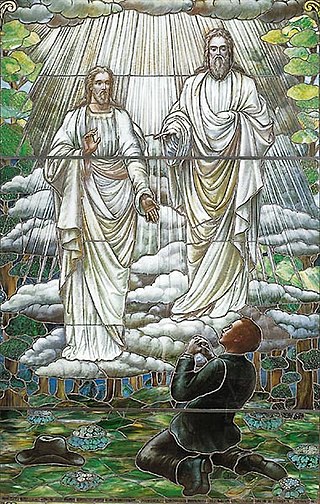
Mormonism and Nicene Christianity have a complex theological, historical, and sociological relationship. Mormons express their doctrines using biblical terminology. They have similar views about the nature of Jesus Christ's atonement, bodily resurrection, and Second Coming as mainstream Christians. Nevertheless, most Mormons do not accept the doctrine of the Trinity as codified in the Nicene Creed of 325 and the Nicene-Constantinopolitan Creed of 381. Although Mormons consider the Protestant Bible to be holy scripture, they do not believe in biblical inerrancy. They have also adopted additional scriptures that they believe to have been divinely revealed to Joseph Smith, including the Book of Mormon, the Doctrine and Covenants, and the Pearl of Great Price. Mormons practice baptism and celebrate the sacrament of the Lord's Supper, but they also participate in other religious rituals. Mormons self-identify as Christians.
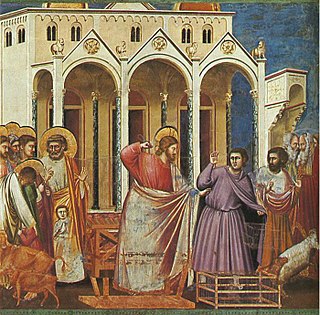
Christian views on poverty and wealth vary. At one end of the spectrum is a view which casts wealth and materialism as an evil to be avoided and even combated. At the other end is a view which casts prosperity and well-being as a blessing from God.

Rosaria Champagne Butterfield is an American activist and former tenured professor of English at Syracuse University.












